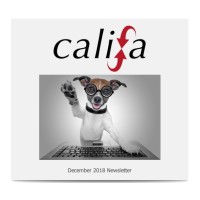
Califa Group
Our Mission: To provide cost effective delivery of services, programs, and products through a membership network of libraries. Califa Group is a nonprofit library membership consortium of more than 230 libraries and is the largest library network in California. Founded in 2004, Califa brokers and facilitates the procurement of library products; works closely with the California State Library in administering a number of statewide projects supported by federal Library Services and Technology Act funds, such as the enki Library ebook platform; offers Continuing Education training through the Infopeople project, and manages master contracts and pricing agreements with publishers and vendors. With years of experience and a network of professional contacts, Califa has demonstrated capacity and experience in grant program design, delivery, and management. Our membership includes all sizes and types of libraries – academic, research, public, school, corporate, medical, law, and special. A Board of Directors, elected by and from the membership, governs Califa, which is based in San Francisco, CA.






